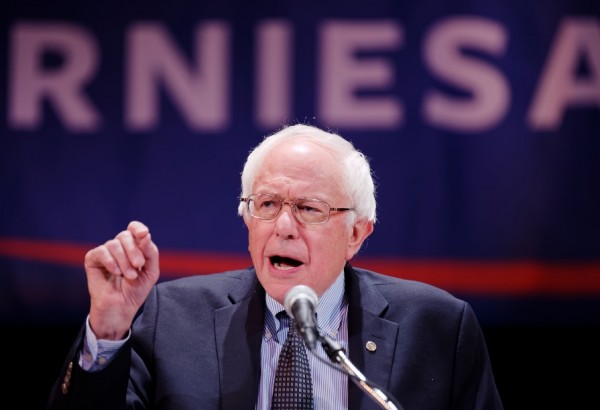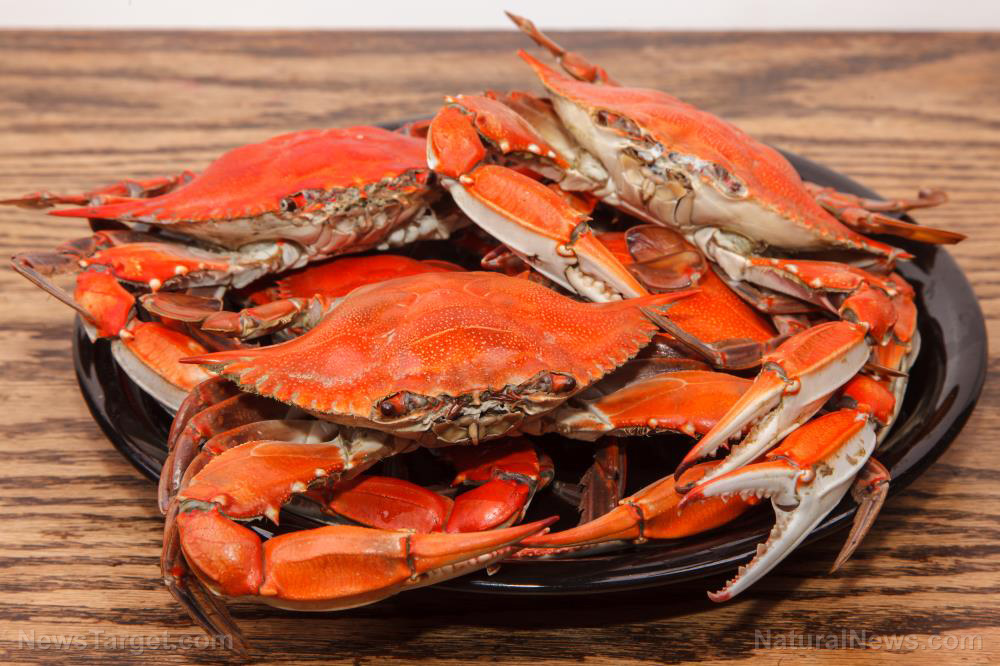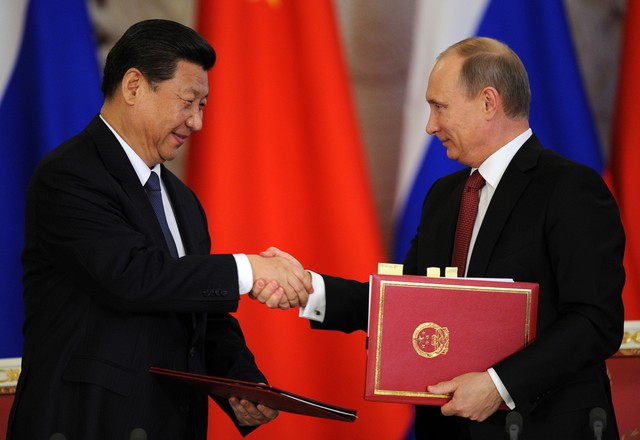
Advertisement
Love him or hate him, there’s no denying that Vermont Senator and Democrat presidential candidate Bernie Sanders is shaking things up in Washington by actively challenging the establishment, much in the same way as Republican presidential frontrunner Donald Trump. And as punishment for trying to break the status quo, the mainstream media is now marginalizing this democratic socialist by cutting him off during speeches when the truth hits a little too close to home.
Following the Nevada Democrat caucus, Sanders gave a speech in Boston where he discussed trade agreements like the North American Free Trade Agreement (NAFTA) and the Central America Free Trade Agreement (CAFTA), both of which he opposed for eroding American jobs. As he was discussing the massive losses in high-wage U.S. jobs that resulted from the passage of these two trade agreements, Sanders also touched on the more recent Trans-Pacific Partnership, or TPP, which he’s also fighting against on behalf of the American people.
“We have lost millions of decent paying jobs, which have ravaged community after community after community all over this country,” Sanders emphasized during the press conference, which was aired on MSNBC. “The average American who walks into a store now finds it harder and harder to purchase products made in America. And often the only alternative is made in China or someplace else.”
“Now on that issue, I voted against NAFTA, against CAFTA, against permanent normal trade relations with China, and I am helping to lead the opposition to the Trans Pacific Partnership,” Sanders continued, with much applause. “I have a…,” he proceeded, before being immediately muted by MSNBC’s Kate Snow as she cut away to other “breaking news” from the Ted Cruz campaign.

“You’ve been listening to Bernie Sanders, less of a press conference, more of a speech,” she piped in, before redirecting viewers’ attention to the Cruz campaign’s firing of its press spokesman. “I want to turn back to the Republican side of things.”
You can watch the short video clip at The Intercept.
Mainstream media distracting public from TPP with fake news, manufactured controversies
The Trans-Pacific Partnership isn’t something that the American media talks about very often, especially with any sort of honest criticism. A quick Google News search reveals that the only media sources talking about the TPP are those from overseas, with the exception of a few domestic sources that couch the treasonous legislation as something that Barack Obama is “optimistic” about getting passed through Congress.
The Washington Post offered some insights into how many House Democrats feel about the legislation – they largely oppose it, despite the Obama Administration’s aggressive efforts to get it passed. Many other members of Congress, however, have been trying to fast-track approval for the TPP for at least the past year, while the mainstream media covers for them with various controversies involving flags, guns, sex changes and other manufactured events.
Natural News has been on the forefront of covering the TPP controversy, as has the Cornucopia Institute, which recently published a report explaining in further detail how it will harm the U.S. and American workers.
“Multinational agribusiness companies want this deal—it provides them a framework to lower regulations and expand their market power in multiple countries,” said Karen Hansen-Kuhn, Director of International Strategies at the Institute for Agriculture & Trade Policy (IATP).
“The future of this TPP is very much in doubt. Legislators and civil society in all TPP countries are not fooled by false promises. In farming, as in manufacturing, these trade deals have cost jobs and increased corporate control over our economies. TPP will double down on existing problems, and there are new provisions, such as bans on seed saving and expanding market access for agricultural biotechnology, that could make things worse.”
Bernie Sanders is right: the TPP is a death sentence for American sovereignty and US jobs
In essence, the TPP will allow both multinational and foreign corporations, whether they be agri-chemical giants like Monsanto or pharmaceutical behemoths like Merck & Co., to challenge and override national laws meant to protect consumers. If passed, the TPP will basically put corporations in charge of regulating themselves, which means no more safeguards for the environment, human health, or national sovereignty.
“The TPP would open up the U.S. to a flood of seafood, dairy, fruit and vegetable imports at a time when Congress refuses to fund food safety inspection and the food industry refuses to pay for the regulatory services to expedite imports,” adds IATP Senior Policy Analyst Steve Suppan.
For more on what the TPP will do to the American economy and food supply, check out the IATP’s Trade Secrets series.
Sources for this article include:
Submit a correction >>
This article may contain statements that reflect the opinion of the author
Advertisement
Advertisements















